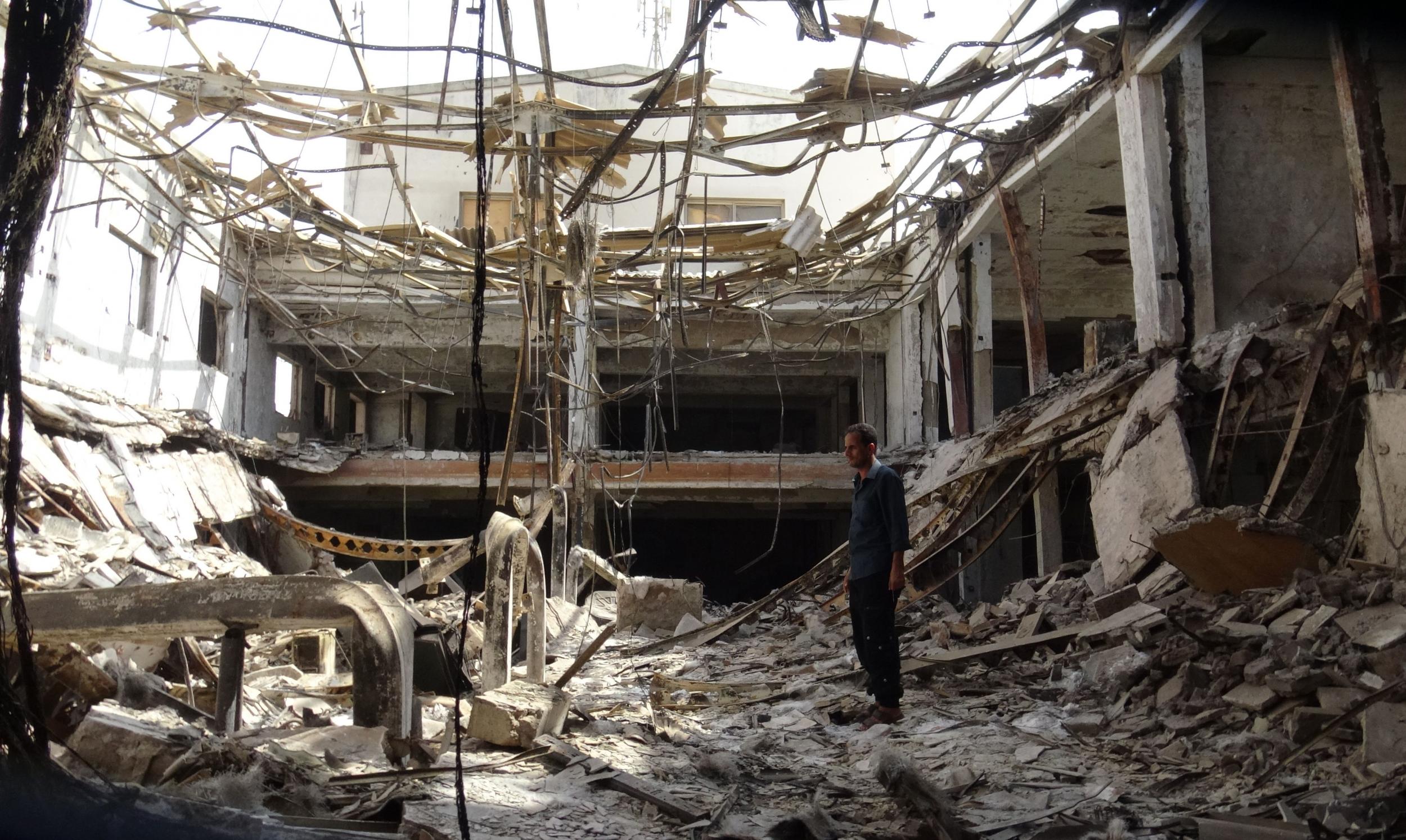As Yemen ceasefire comes into effect, a tense truce holds in flashpoint city of Hodeidah
Residents hope calm will prevail allowing delivery of much-needed humanitarian supplies to the Red Sea city caught up months of fighting

Your support helps us to tell the story
From reproductive rights to climate change to Big Tech, The Independent is on the ground when the story is developing. Whether it's investigating the financials of Elon Musk's pro-Trump PAC or producing our latest documentary, 'The A Word', which shines a light on the American women fighting for reproductive rights, we know how important it is to parse out the facts from the messaging.
At such a critical moment in US history, we need reporters on the ground. Your donation allows us to keep sending journalists to speak to both sides of the story.
The Independent is trusted by Americans across the entire political spectrum. And unlike many other quality news outlets, we choose not to lock Americans out of our reporting and analysis with paywalls. We believe quality journalism should be available to everyone, paid for by those who can afford it.
Your support makes all the difference.A tense calm held in the flashpoint city of Hodeidah in Yemen on Tuesday after a United Nations-brokered ceasefire between the Yemeni government and rebel Houthi forces came into effect.
Residents of the city, which is a supply lifeline for millions of Yemenis, told The Independent that clashes had intensified in the lead up to the midnight deadline, sparking fears negotiations had failed.
The breakthrough deal was reached during recent peace talks held in Sweden, which many hope will pave the way for a long-term peace settlement.
Both sides had initially reported violations in Hodeidah, until 3am local time Tuesday, when the shelling stopped.
“There has been complete calm since 3.00am Yemen time (12.00am GMT) in the city of Hodeidah,” a military source loyal to the government said.
Over the weekend residents of the embattled Red Sea city told The Independent many had tried to leave the area, which is home to some 300,000, as the fighting intensified.
“The strikes and the shelling had been very very heavy, the situation was terrible,” said Ashwaq Moharram, a Yemeni doctor who described hospitals coming under fire.
Ms Moharram left Hodeidah for Sanaa fearing that the roads to the Houthi-held capital would be closed indefinitely.
“We just hope the ceasefire holds, we need supplies to come in,” she added.
Yemen has been ripped apart by a four-year war that erupted after the Iran-backed Houthis took control of the capital Sanaa in late 2014, before sweeping across the country in early 2015, ousting recognised president Abedrabbo Mansour Hadi.
Saudi Arabia and its Gulf allies launched a bombing campaign in March of the same year to reinstate their ally, fearing the expansion of Iranian influence on their borders.
The impoverished Gulf state is now suffering from the world’s worst humanitarian crisis in terms of numbers.
At least two-thirds of the 29 million population are reliant on aid to survive, while the UN has warned that some 20 million people are on the brink of famine.
As many as 60,000 people are believed to have been killed in the fighting since 2016, according to the latest estimate by monitoring groups.
Exacerbating the crisis is a collapsing health system and the fact government salaries have not been paid since the start of the war.
Yemen’s economy has shrunk by 50 per cent since 2015 and inflation is projected at over 40 per cent this year, according to the World Bank. The currency, meanwhile, has lost two-thirds of its value in the same time period.
The historic talks in Sweden, the first to be held since 2016, saw both Yemeni sides agree to withdraw from Hodeidah, which has been at the epicentre of the latest battle.
Between 70 and 80 percent of all food and medical supplies to Yemen come in through the strategic port. Its closure could have seen millions starve to death.
In the Hodeidah agreement, a joint committee led by UN officers will oversee the ceasefire. Local authorities and police will run the city and its three ports under UN supervision. The two sides are barred from bringing in reinforcements.
Underlining the truce is a huge prisoner swap of as many as 15,000 people. The Red Cross is set to oversee the exchange, the details of which have yet to be confirmed.
The UN also announced that both sides agreed to meet again in January to host further talks.
Join our commenting forum
Join thought-provoking conversations, follow other Independent readers and see their replies
Comments